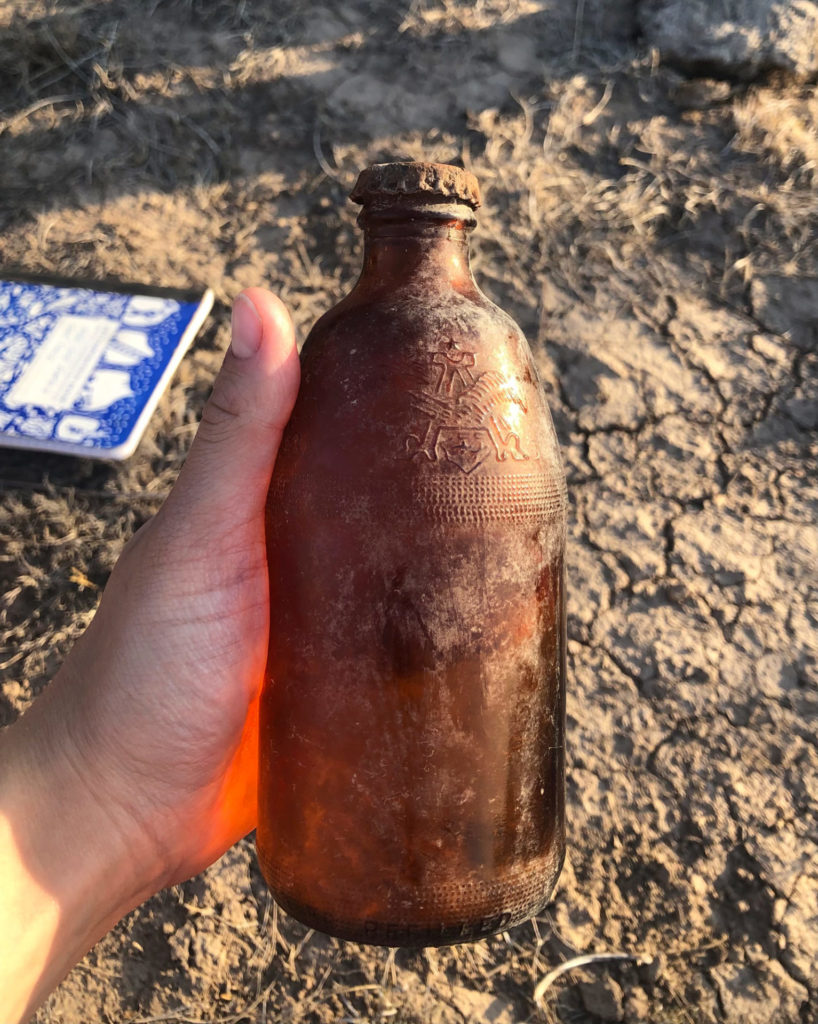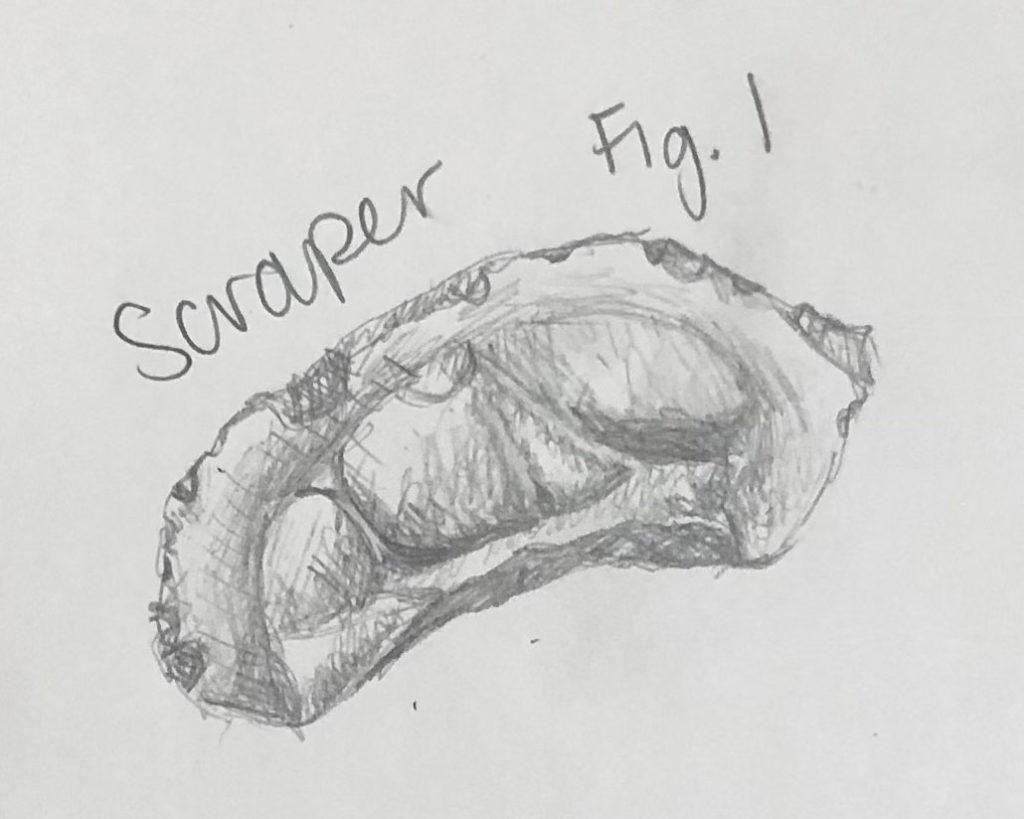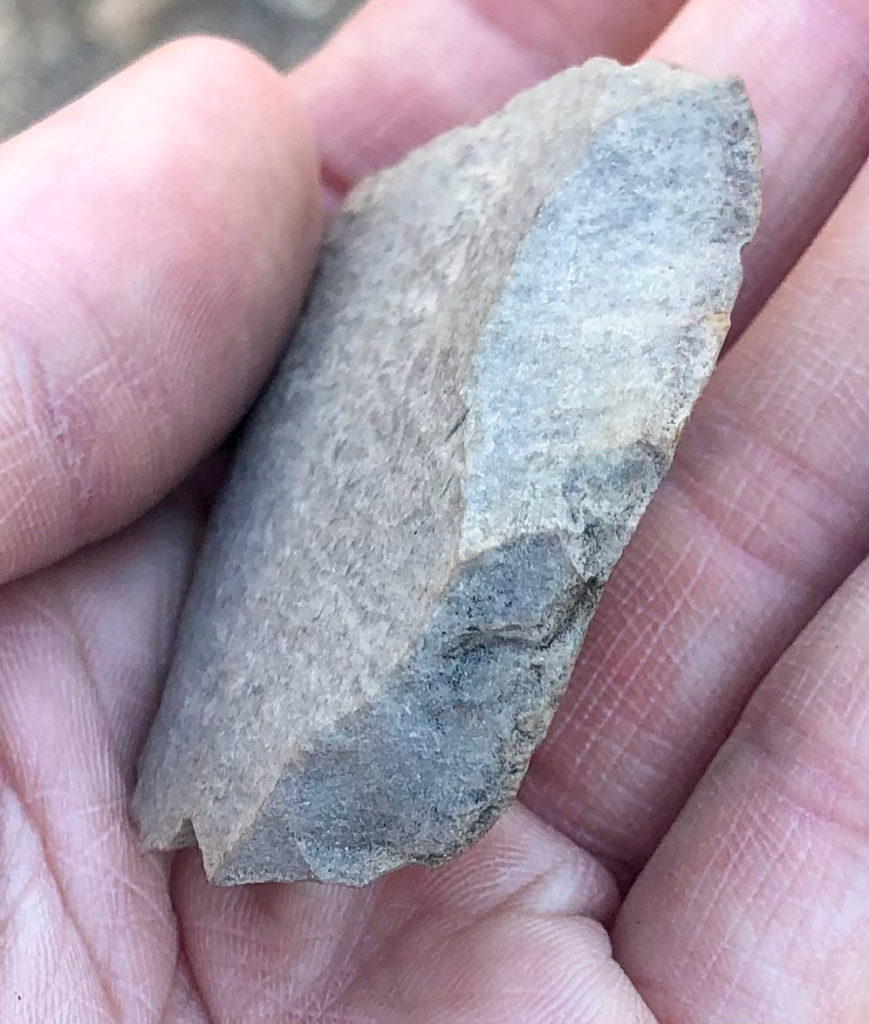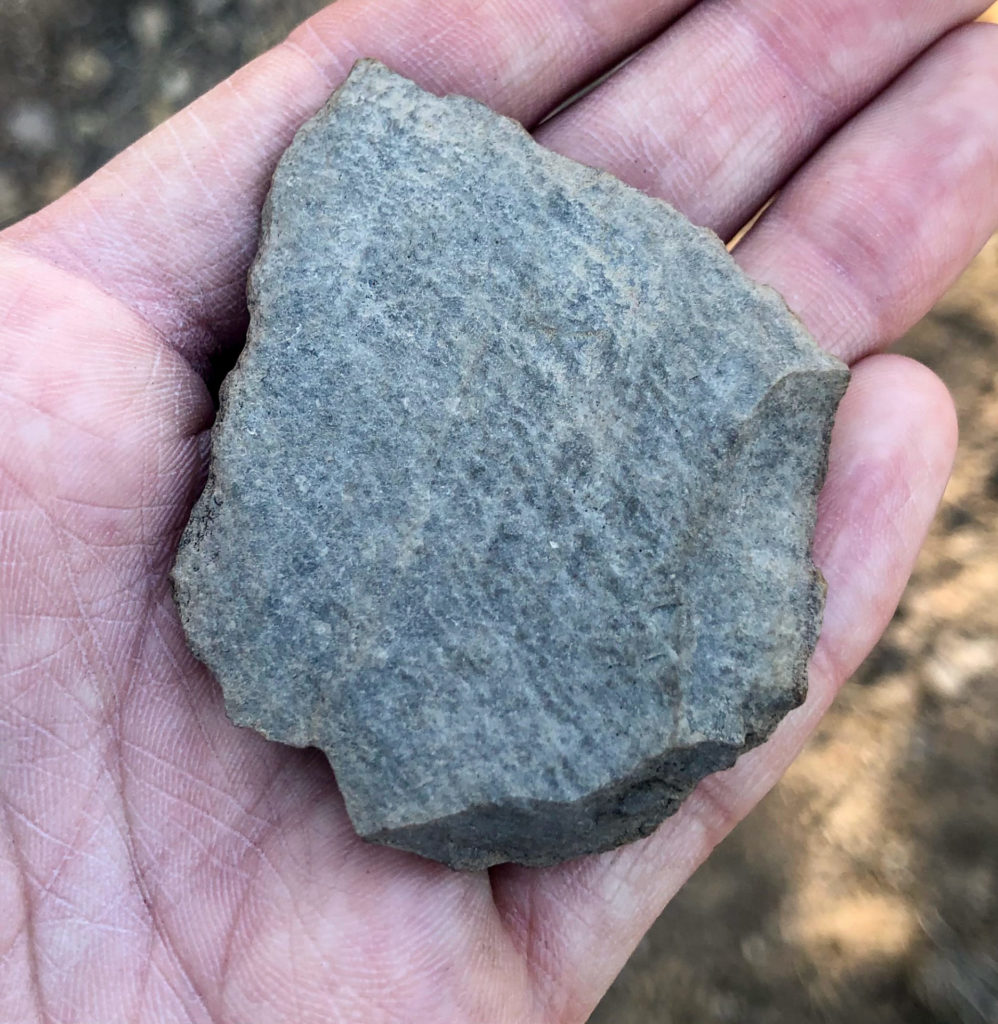- Home
- >
- Preservation Archaeology Blog
- >
- The Ins and Outs of Survey
(June 10, 2021)—Over the past week, I’ve been learning the processes involved in archaeological survey. In theory, this work sounds like the dream—hiking and searching in the name of archaeological research. In actuality, however, it can be just as frustrating as it is rewarding.
The first day was spent under the hot sun, scanning the ground until I was cross-eyed; and the work yielded few results. We found a few very interesting Anheuser-Busch bottles from the 1930s within an hour of beginning. They were mostly complete and even included the logo, which I think set our hopes too high for the rest of the day—after that, our progress stagnated immensely. There were a few prehistoric flakes and some glass shards, but mostly we just walked and walked for what seemed like forever. After six hours and many miles, I was tired and ready to put archaeological survey behind me completely.

But, as with most things, it got better. Over the next few days, we found a multitude of artifacts, both ancient and historical: flakes, rock alignments, more bottles and cans dating back decades, and even a beautifully made scraper. We learned how to create maps and advocate for the preservation of the important sites near us.

My personal greatest moment was on the last day, when I finally found my first-ever flake. I’d spent the previous four days searching desperately amid the endless sea of rocks in our survey area, so finding one all on my own felt like the best kind of victory.


During this time, I also learned the true value of survey work in relation to the field of archaeology: It is the first step toward recognizing and protecting archaeological sites. It requires a keen eye and never-ending patience, neither of which come naturally to me. It is a tough and sometimes unrewarding job that is not always as simple as it first seems. It was also a great bonding experience for me and my fellow teammates. On those long walks, I learned more than I could ever hope to learn on my own.
